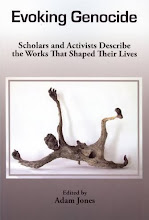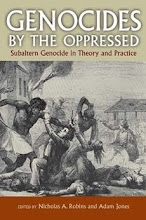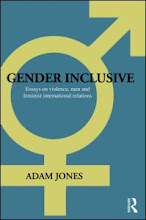Rwanda's Other Genocide
By Tristan McConnell
The Nation, September 17, 2010
"[...] There are two things you can -- indeed must -- talk about in Rwanda. The first is the genocide. Seemingly every town has its own genocide memorial, mausoleums with neatly arranged rows of skulls and bones on wooden shelves. They are eerie places, and impossibly moving. The second is that Kagame and his troops halted the genocide and have shown a single-minded determination to rebuild the country ever since. Last month a draft United Nations report was leaked that questions this dominant discourse, forcing Rwandans to confront something else that cannot be talked about in Rwanda: what happened in neighboring Democratic Republic of Congo after the genocide? For seven months a team of researchers from the UN's Geneva-based Office of the High Commissioner for Human Rights consulted documents (more than 1,500 of them) and interviewed witnesses (over 1,200) across Congo's vast territory. They concluded that Kagame's own troops were responsible for a litany of atrocities and massacres after the Rwanda genocide was over. Some journalists, human rights activists and others have long argued that Rwanda's invasion was a 'counter-genocide,' but never have the allegations been leveled in such detail, and by an international body like the UN.
As Kagame’s army advanced southward through Rwanda in 1994, the Hutu killers fled to neighboring Congo, hiding among more than a million refugees in squalid camps along the border. From there the genocidaires reorganized, rearmed and restarted cross-border attacks on Tutsis. In 1996 Kagame ordered an invasion to hunt down the killers. The UN researchers were tasked with documenting the most serious violations of human rights committed in Congo during a series of wars between 1993 and 2003, which, at their height, involved eight countries and led to the deaths of around 4 million people, mostly from disease and ill health. The draft report talks of 'the relentless pursuit and mass killing of Hutu refugees, members of the former Armed Forces of Rwanda and militias implicated in the genocide of 1994.' Revenge attacks might be understandable, given the horrific context of the genocide; but the authors of the report believe a baser motivation may have been in play. 'The systematic and widespread attacks ... reveal a number of damning elements that, if proven before a competent court, could be classified as crimes of genocide,' the draft says. 'Probably tens of thousands were killed' as Rwandan soldiers made 'no effort' to distinguish between combatants and civilians. So many deaths 'cannot be attributed to the hazards of war or seen as equating to collateral damage,' says the report. 'The majority of the victims were children, women, elderly people and the sick, who were often undernourished and posed no threat to the attacking forces.' [...]"
Saturday, September 18, 2010
Subscribe to:
Post Comments (Atom)














No comments:
Post a Comment
Please be constructive in your comments. - AJ